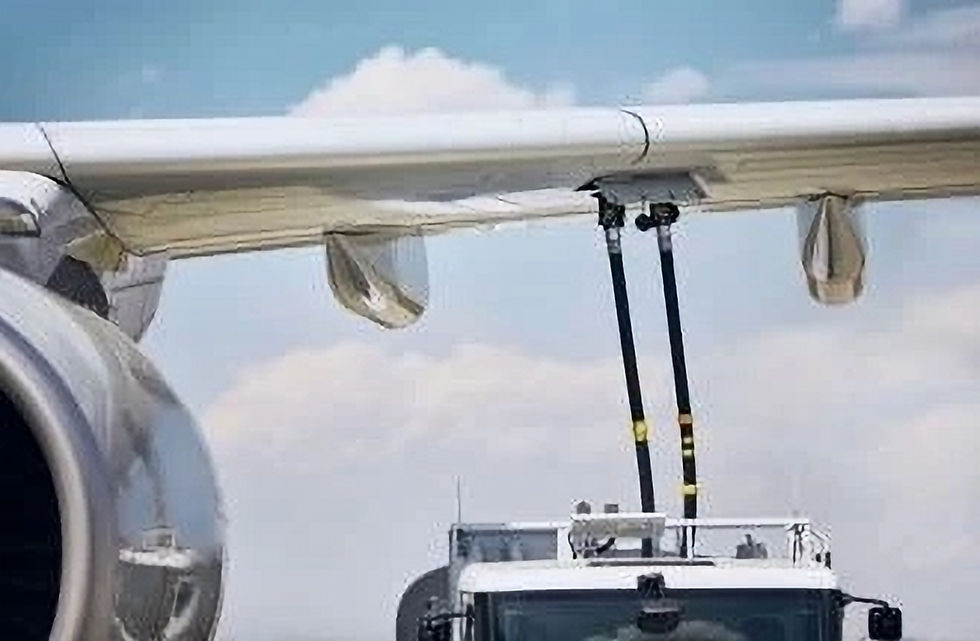IATA: Policy shortcomings put SAF production at risk
- International Air Transport Association
- Jun 3, 2025
- 3 min read

The International Air Transport Association announced that it expects sustainable aviation fuel (SAF) production to reach 2 million metric tons (more than 660 million gallons) or 0.7 percent of airlines’ total fuel consumption in 2025.
“While it is encouraging that SAF production is expected to double to 2 million tons in 2025, that is just 0.7 percent of aviation’s total fuel needs,” said Willie Walsh, IATA’s director general. “And even that relatively small amount will add $4.4 billion globally to the fuel bill. The pace of progress in ramping up production and gaining efficiencies to reduce costs must accelerate.”
Most SAF is now heading toward Europe, where the EU and U.K. mandates kicked in on Jan. 1.
Unacceptably, the cost of SAF to airlines has now doubled in Europe because of compliance fees that SAF producers or suppliers are charging.
For the expected 1 million tons of SAF that will be purchased to meet the European mandates in 2025, the expected cost at current market prices is $1.2 billion.
Compliance fees are estimated to add an additional $1.7 billion on top of market prices—an amount that could have abated an additional 3.5 million tons of carbon emissions.
Instead of promoting the use of SAF, Europe’s SAF mandates have made SAF five times more costly than conventional jet fuel.
“This highlights the problem with the implementation of mandates before there are sufficient market conditions and before safeguards are in place against unreasonable market practices that raise the cost of decarbonization,” Walsh said. “Raising the cost of the energy transition that is already estimated to be a staggering $4.7 trillion should not be the aim or the result of decarbonization policies. Europe needs to realize that its approach is not working and find another way.”
To support the development of a global SAF market, IATA has worked on two initiatives:
A Civil Aviation Decarbonization Organization-managed SAF registry that brings a transparent and standardized system for tracking SAF purchases, usage and associated emissions reductions in compliance with international regulations such as Carbon Offsetting Scheme for International Aviation and the EU Emissions Trading System.
The SAF Matchmaker that will facilitate SAF procurement by matching airline requests for SAF with supply offers.
IATA urges governments to focus on three areas:
Creating more effective policies. Eliminating the disadvantage that renewable energy producers face compared with Big Oil is necessary to scale renewable energy production in general and SAF production in particular. This includes redirecting a portion of the $1 trillion in subsidies that governments globally grant for fossil fuel.
Develop a comprehensive approach to energy policy that includes SAF. Firstly, advancing SAF production requires an increase in renewable energy production from which SAF is derived. Secondly, it also requires policies to ensure SAF is allocated an appropriate portion of renewable energy production. A wholistic approach should support joint use of infrastructure, coproduction and other measures that will benefit the energy transition for aviation and for all other economic sectors.
Ensure the success of CORSIA as the sole market-based mechanism to address international aviation’s CO2 emissions. IATA urges governments to make eligible emissions units (EEUs) available to airlines. To date Guyana is the only state to have made their carbon credits available for airlines to purchase and claim against their CORSIA obligations.
Focus on India
India, one of the emerging economies on the world stage today, is the third-largest oil user after the U.S. and China.
India launched the Global Biofuels Alliance to position biofuels as a key to energy transition and economic growth.
This includes a target for 2 percent SAF blending for international flights by 2028 with enabling policies such as guaranteed pricing, capital support for new projects and technical standards.
IATA will be working with the Indian Sugar & Bio-Energy Manufacturers Association and Praj Industries to provide guidance on global best practices for lifecycle assessment of the use of feedstocks in the country.
As the third-largest global civil-aviation market, IATA said India can strengthen its leadership in biofuels with the accelerated adoption of SAF through progressive policies.


































